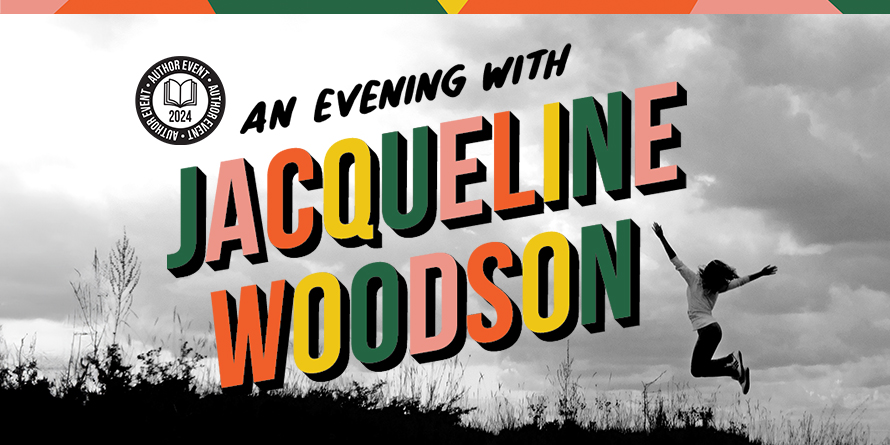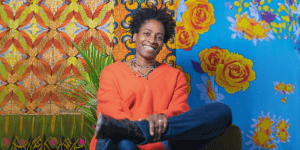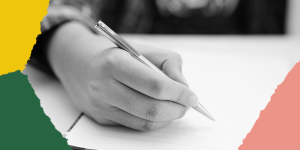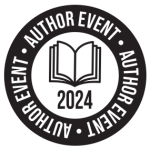 For best-selling author and MacArthur Fellow Jacqueline Woodson, the library was like "a second home" while growing up.
For best-selling author and MacArthur Fellow Jacqueline Woodson, the library was like "a second home" while growing up.
"From the time I could sign my name, we had library cards," Woodson says. "I'm sure there were independent bookstores somewhere, but they weren't in the Bushwick section of Brooklyn in the '70s and '80s."
So Woodson, whose mother worked full time, went to the library every day after school.
"It was a place you went to read and to be exposed to so much about the world through literature," she says.
In a career spanning four decades and counting, Woodson's own literature and poetry have exposed countless more to the world around them. And on April 5, 2024, Jefferson County Public Library welcomes the award-winning author of "Red at the Bone," "Miracle's Boys" and "The Day You Begin" for a presentation, Q&A and book signing at JCPL's 2024 Signature Author Event: An Evening with Jacqueline Woodson.
In anticipation of the event, Woodson took time out of her busy schedule to discuss libraries, reading and writing with JCPL. The following has been edited for length and clarity.
Do you remember when you became aware that someone was writing the books you were reading? That books didn't just happen, that there were authors behind the scenes?
 I remember thinking: "I want to do this." And I remember seeing names attached to the books. But in terms of thinking that someone had sat down at their desk, or wherever they did it, and created this thing out of their head, I think that took a lot longer for me to understand.
I remember thinking: "I want to do this." And I remember seeing names attached to the books. But in terms of thinking that someone had sat down at their desk, or wherever they did it, and created this thing out of their head, I think that took a lot longer for me to understand.
One of the first books I loved was "The Little Match Girl" by Hans Christian Andersen. And I knew the book. Like, I knew about the little girl. I knew the story. And I knew the story's impact on me. But I wasn't thinking about the author or the illustrator — because these books were illustrated. Oscar Wilde's "The Selfish Giant," the same thing: I knew the story, but I didn't have that connection.
It took a lot to get to that understanding. Now, when I look at a book, the first thing I want to know is who wrote it and hear something about how they wrote it; how they came to writing.
I love the scene in "Brown Girl Dreaming" when Ms. Vivo recognizes the writer in you — when you've got the lines. [In the book, Woodson recounts the moment when her teacher had the fifth-grade Woodson read her poem to the class.] I love that those lines are actually stolen from your sister. Can you talk a little bit about what it means to not just tell your story but your sister's story, your friends' stories, the neighborhood...
I definitely feel like I learned to write by reading. And by listening to stories, listening to other people's stories, and reading other people's stories. I have a copy of "American Negro Poetry: An Anthology" that I borrowed from the library and never returned. I remember having to pay for it and my mom being so mad about me having this "lost book." I mean, I knew exactly where it was; I just had no intention of returning it.
 But in the book, once it became mine, Langston Hughes has a poem, and then I have — in my little girl handwriting — me copying his poem and changing a couple of words in it. And then writing: "By" — at that time, I was still Jackie — "By Jackie Woodson."
But in the book, once it became mine, Langston Hughes has a poem, and then I have — in my little girl handwriting — me copying his poem and changing a couple of words in it. And then writing: "By" — at that time, I was still Jackie — "By Jackie Woodson."
What I was doing was teaching myself how to write and learning how to write from other writers. And in that case, even my sister — she had these two great verses: "Black brothers, Black sisters, all of them were great. No fear, no fright, but the willingness to fight." And then I was like, "Oh, yeah, this is great. I want this. I want to keep this." And this is the jumping-off for my inspiration.
So, three-quarters of the poem is mine, and then there's the part that my sister wrote that she had no interest in. I mean, she literally said, "Here, you could have this." And I was like, "Okay, so these words are mine now!" Which is so interesting.
You have a lot of different styles, whether it's poetry or prose, but you also speak to a lot of different audiences. I'm curious to know how you decide which story is meant for which audience and how you go about telling it.
I think it's more of a feeling. I definitely know that if I come to a book and it feels very visual to me that it's going to be, most likely, a picture book. And so I start shaping the language in that way. Whereas, if I come to a book and it feels kind of distant and almost vague ... it's probably going to be for adults.
When I was writing "Remember Us," I was trying to write poetry and fiction and blend them in this way that provoked thought. But "Remember Us," like "Brown Girl Dreaming," breaks the rule of middle grade in that it's someone looking back on that period.
So I tend to intuit it, sit with it, and try to figure out whose story it is and why they're telling it now. And then the rest comes.
What's great about your prose is that it's very clear. It's also very direct. Especially in "The Day You Begin," you use the word "you" a lot. It feels like there's an actual conversation between author and reader. ... There's this charge of, here's my story, or here's the story I'm telling you. Now, you go tell your story.
Yeah, and that's the hope. I think that's the hope of so many writers. It's what writers did for me, right? They spark this sense of the stories that I had within myself. And I do think that part of our work is to really have a conversation with our readers that makes them think about the conversations they want to have with the next people. And the conversations they want to have with themselves.


